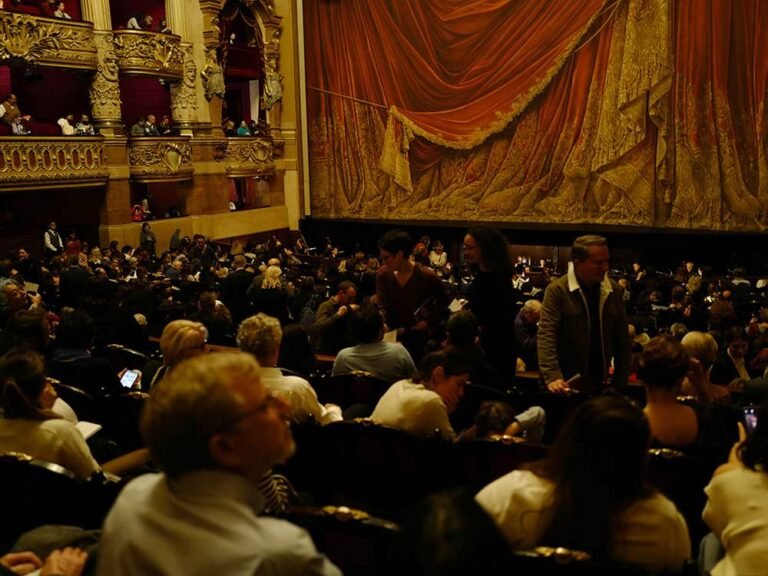jusqu’à
Jusqu’à is a common French preposition meaning “until,” “up to,” or “as far as,” depending on context. It expresses a limit in time, space, quantity, or extent. Its form changes slightly when combined with certain words, producing variants such as jusqu’au, jusqu’aux, jusqu’en, and jusqu’à ce que.
1. Temporal use: “until”
When referring to time, jusqu’à means “until” or “up to (a certain time).” It introduces a specific moment or period.
- J’ai travaillé jusqu’à minuit. – I worked until midnight.
- Il dort jusqu’à midi. – He sleeps until noon.
- Attends jusqu’à demain. – Wait until tomorrow.
- Jusqu’à présent, tout va bien. – Until now, everything is fine.
Variants
- Jusqu’au matin – until morning
- Jusqu’à la fin du mois – until the end of the month
- Jusqu’en juin – until June
- Jusqu’à ce jour – until this day
2. Spatial use: “as far as” or “up to”
In spatial contexts, jusqu’à indicates a limit of movement or distance.
- Va jusqu’à la porte. – Go up to the door.
- Nous sommes allés jusqu’à la rivière. – We went as far as the river.
- Ils ont marché jusqu’au sommet. – They walked up to the summit.
- Le train va jusqu’à Marseille. – The train goes as far as Marseille.
Variants
- Jusqu’au bout de la rue – to the end of the street
- Jusqu’aux montagnes – up to the mountains
- Jusqu’en Espagne – as far as Spain
3. Quantitative and abstract uses
Jusqu’à can mark the extent or limit of an action, idea, or emotion.
- Il est allé jusqu’à mentir. – He went so far as to lie.
- Elle est prête jusqu’au sacrifice. – She is ready to go as far as sacrificing herself.
- Je t’aime jusqu’à la folie. – I love you madly (literally “up to madness”).
- Il a attendu jusqu’à l’impossible. – He waited beyond reason.
4. The expression jusqu’à ce que
When followed by a clause, jusqu’à ce que means “until” and always takes the subjunctive.
- Attends jusqu’à ce qu’il revienne. – Wait until he comes back.
- Je resterai ici jusqu’à ce que tu partes. – I will stay here until you leave.
- Ils ont parlé jusqu’à ce qu’il fasse nuit. – They talked until it got dark.
5. Variants with contractions
Jusqu’à combines with the definite article when followed by masculine or plural nouns:
- jusqu’au = jusqu’à + le (until/to the)
- Jusqu’au matin, jusqu’au pont, jusqu’au bout
- jusqu’aux = jusqu’à + les (until/to the plural)
- Jusqu’aux vacances, jusqu’aux collines
- jusqu’à la – used with feminine nouns
- Jusqu’à la gare, jusqu’à la mer
- jusqu’en – used before countries, months, or years without an article
- Jusqu’en France, jusqu’en 2020, jusqu’en septembre
6. Idiomatic expressions
- Jusqu’à présent – until now
- Jusqu’à nouvel ordre – until further notice
- Jusqu’à plus soif – to one’s heart’s content (literally “until more thirst”)
- Jusqu’à la mort – until death
- Jusqu’à ce niveau – up to this level
- Aller jusqu’au bout – to go all the way, to see something through
- Être patient jusqu’à l’extrême – to be patient to the extreme
Summary
- Jusqu’à expresses a limit in time, space, quantity, or extent.
- Temporal: jusqu’à minuit (until midnight).
- Spatial: jusqu’à la porte (as far as the door).
- Abstract: jusqu’à mentir (to the point of lying).
- Jusqu’à ce que introduces a clause with the subjunctive.
- Common variants: jusqu’au, jusqu’aux, jusqu’à la, jusqu’en.






